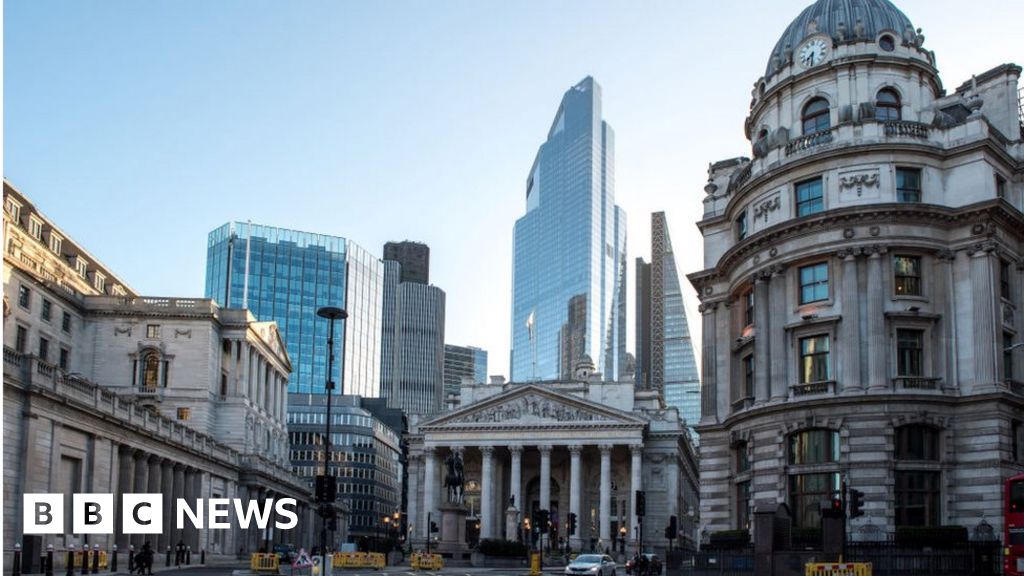
Almost everybody agrees that the government can't afford not to make huge interventions to keep businesses, households, workers and the economy afloat through the coronavirus crisis.
But the costs are now racking up.
The government is set to unveil a new multi-billion pound scheme for the self-employed, on top of the coronavirus job retention scheme for workers, cash handouts for small businesses, tax holidays and extra welfare payments. On top of that it is also covering the losses of the railways and funding public spending on health.
In ordinary times, a recession means less tax and more spending, sending deficits higher as a result of the so-called "fiscal stabilisers".
But this is no ordinary downturn. It is - for an undefined period - shutting down large swathes of the economy. For some companies and sectors we are talking not about less tax but zero tax, and the need for subsidies.
Massive borrowing is needed to spend tens - and perhaps hundreds - of billions more at a time when the tax base is eroding.
A new study by Richard Hughes, a former top Treasury official for the Resolution Foundation points out that previous pandemics have not led to a "V-shaped" recovery - as some had predicted - suggesting that the government should plan for a more prolonged downturn.
So we can just borrow the money, right?
Well, at the very moment of this immense financing need, the markets that have routinely and reliably been throwing money at governments, almost for free, have taken fright.
There is basically a financial riot going on, and government bonds are no longer perceived to be equivalent to cash. Insurance companies and pension funds want and need actual cash, because their customers ask for it as global stock markets fall.
Banks, meanwhile, must deal with millions taking mortgage holidays for at least three months, a spike in non-performing loans and demands to lend more.
All the while, international investors are rushing to buy dollars. These events have distracted the traditional customers for government debt - lending cash to the Treasury - who are now far from guaranteed to be at the table. Indeed, the auctions of even some short-term UK government borrowing suggest a lack of demand in recent days.
That leaves one institution capable of swallowing this: the Bank of England.
And last week, after the announcement of the restarting of quantitative easing - the purchase from the open market of £200bn of borrowing - there was a little-spotted sentence in the official notice to markets on the purchase of gilts and corporate bonds. It said: "The MPC will keep under review the case for participating in the primary market."
In English, this means that the Monetary Policy Committee is considering buying UK government bonds directly from the Treasury.
Turning to central banks
Now, the Bank might well argue that this is to fulfil a statutory remit to keep markets functioning, in this case that market is the gilt market for UK government borrowing. But for many economists this will step over a red line into what is called "monetary financing", the modern day electronic equivalent of printing money - and the usual historical comparisons will undoubtedly be made with the 1930s.
For Mr Hughes, the official who for three years was in charge of the Treasury's relationship with the government bond market, the unique global damage from the wretched pandemic, highlights a significant point.
"Governments may need to turn to their central banks for the liquidity needed to pay out against their commitments while government bond markets are temporarily disrupted," he says.
"Given current levels of market turbulence and the likely dramatic falls in revenue and increases in expenditure in the coming months, these actions may need to happen sooner rather than later."
He suggests that the government's effective overdraft at the Bank of England, the "ways and means account", could be lifted, massively, but temporarily.
The key thing is to communicate that such a move would be temporary, and will be withdrawn after the outbreak is properly contained.
It is not clear whether the MPC is discussing this option today, or indeed discussing it in these terms. But last week Governor Andrew Bailey said "we do have an eye on what the effect of the government's financing needs are, and the government's very, very sensible responses to the crisis we're in.
"I just want to emphasise that we're not abandoning the very clear, central bank philosophy in terms of monetary financing because you know history tells us where that leads."
It goes against the grain of what central bankers do. There are famous cartoons hung up at the Bank decrying an ancient history of this type of move. But the UK will not be alone, many nations are now in this zone, not through excess spending, but the debilitating effects of a global health crisis.
A move in this direction could come very quickly.
"come" - Google News
March 26, 2020 at 07:50AM
https://ift.tt/2y7WYEB
Where is the cash going to come from? - BBC News
"come" - Google News
https://ift.tt/2S8UtrZ
Shoes Man Tutorial
Pos News Update
Meme Update
Korean Entertainment News
Japan News Update
Bagikan Berita Ini














0 Response to "Where is the cash going to come from? - BBC News"
Post a Comment